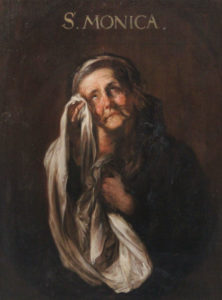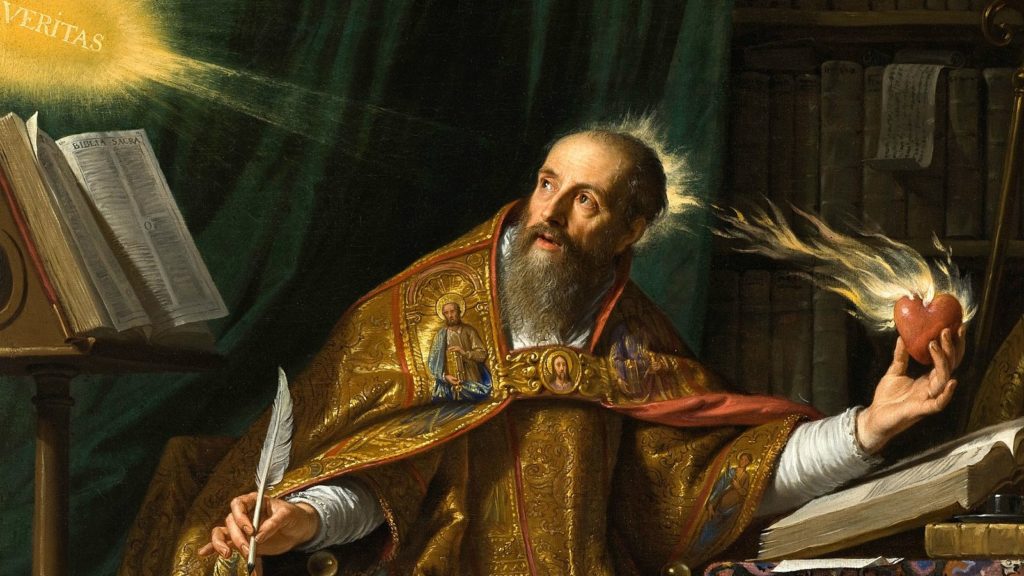Augustine grew up in a fairly ordinary family in Roman Africa. His mother, Monica, was a fervent Christian. His father, Patricius, seems to have been uninterested in religion. Monica instilled in her son an intense devotion to Jesus. Patricius recognized Augustine’s natural gifts and was intensely interested in his preparation for a career. Augustine’s intellectual formation lacked any religious dimension; and his religious formation lacked intellectual content.
In his teen years, he fell into patterns of sin and rebellion. Yet he clung to his mother’s Christ-centered piety. When he went off for advanced studies in big-city Carthage, he was thrilled by the intellectual challenges.
Then, for the first time, he turned his attention to the Scriptures “to find out what they were like.” And he was profoundly disappointed: “when I studied the Bible and compared it with Cicero’s dignified prose, it seemed to me unworthy. My swollen pride recoiled from its style and my intelligence failed to penetrate to its inner meaning.”
Meanwhile, he encountered the cult of the Manicheans. It was a synthesis of several world religions. It had a whiff of the exotic and held out the promise of intelligent faith. He could not bring himself to join the cult, but he identified himself with it more than with the Church.
For a decade and a half he remained in this middle place — no longer Christian, but not fully Manichean.
He changed continents as his career flourished. In Milan he began to distance himself from the Manicheans, and he sought refuge in Plato’s philosophy.

In Milan he also encountered Ambrose, the bishop. Ambrose was, like Augustine, deeply learned and skilled in the art of rhetoric. He was even well versed in philosophy. Augustine went to the cathedral to hear the man preach, but he was interested only in his technique.
Yet he could not help but take in the message.
In Ambrose he discovered that Catholicism “was in fact intellectually respectable.” And Ambrose’s preaching was robustly biblical. The Scriptures, he said, “were now being offered to me under quite a different aspect.” They no longer appeared “absurd” and “crude.”
Hearing the biblical preaching of Ambrose was a turning point. But it was not yet a conversion. Augustine dawdled, attached to sins of the flesh. Then one day he heard — in a child’s voice, though there were no children nearby: “Pick it up and read!”
He took up the first book he saw, and it was St. Paul’s Letter to the Romans: “Not in dissipation and drunkenness, nor in debauchery and lewdness, nor in arguing and jealousy; but put on the Lord Jesus Christ, and make no provision for the flesh or the gratification of your desires” (Romans 13:13-14).
With that moment, everything changed. Seventeen years of sin and resistance fell away with the word of God heard in a moment of preaching, then confirmed by the Sacred Page. Seventeen years of Monica’s prayers were answered in an instant.
We celebrate Augustine’s feast on Aug. 28 — and his mother Monica’s on Aug. 27.

